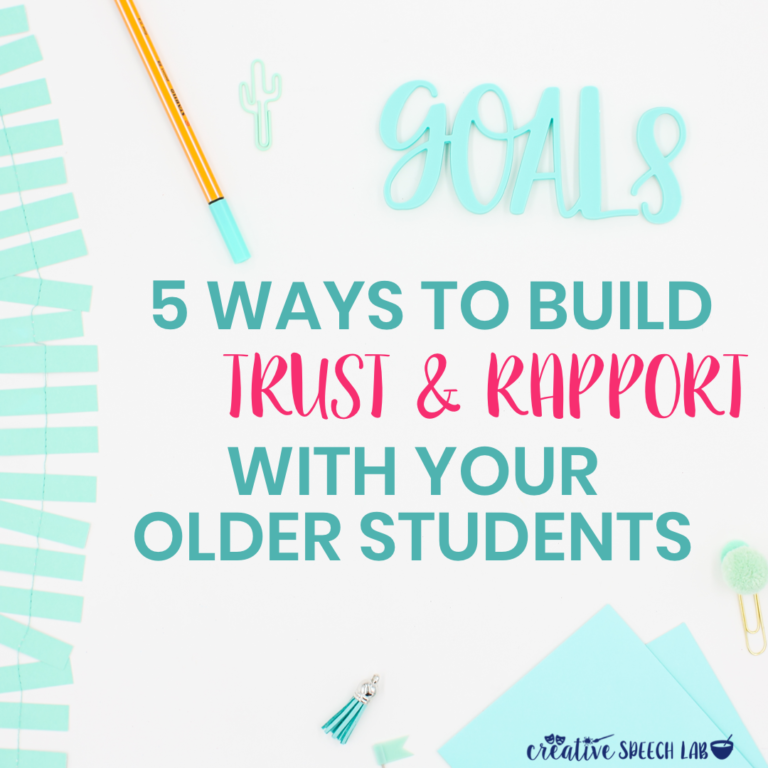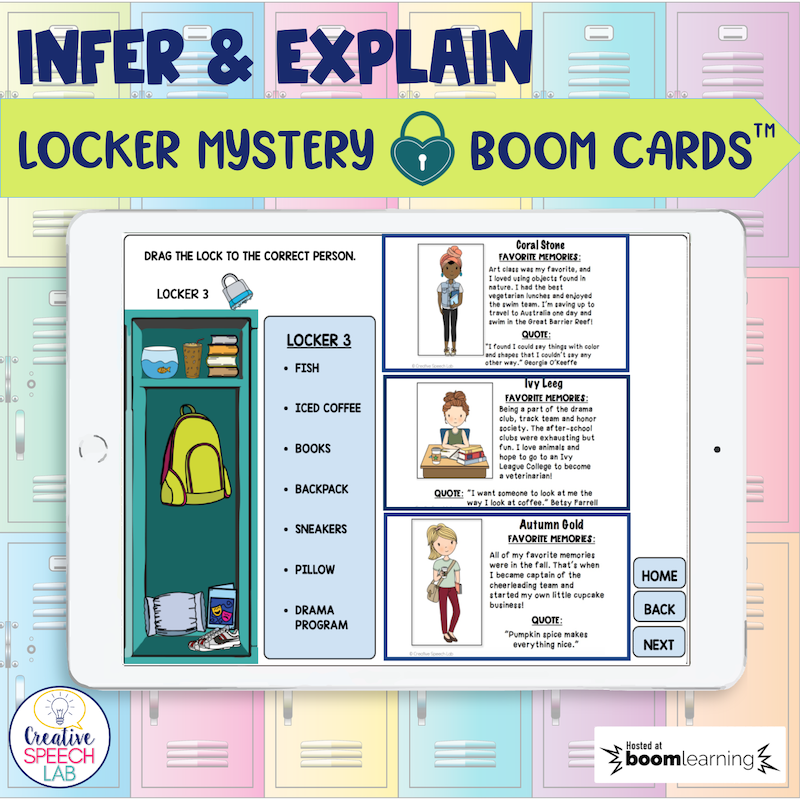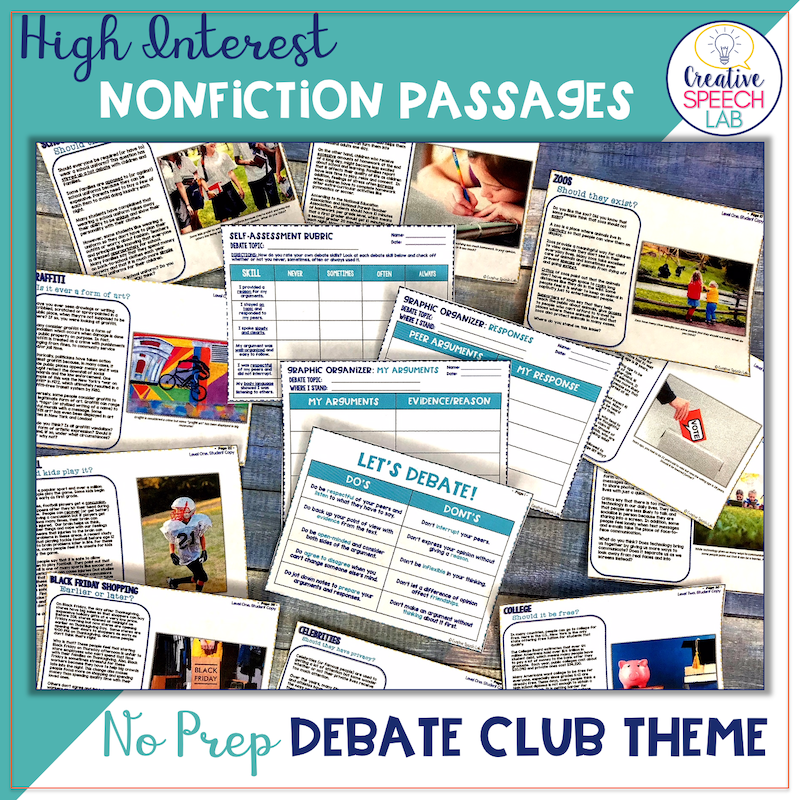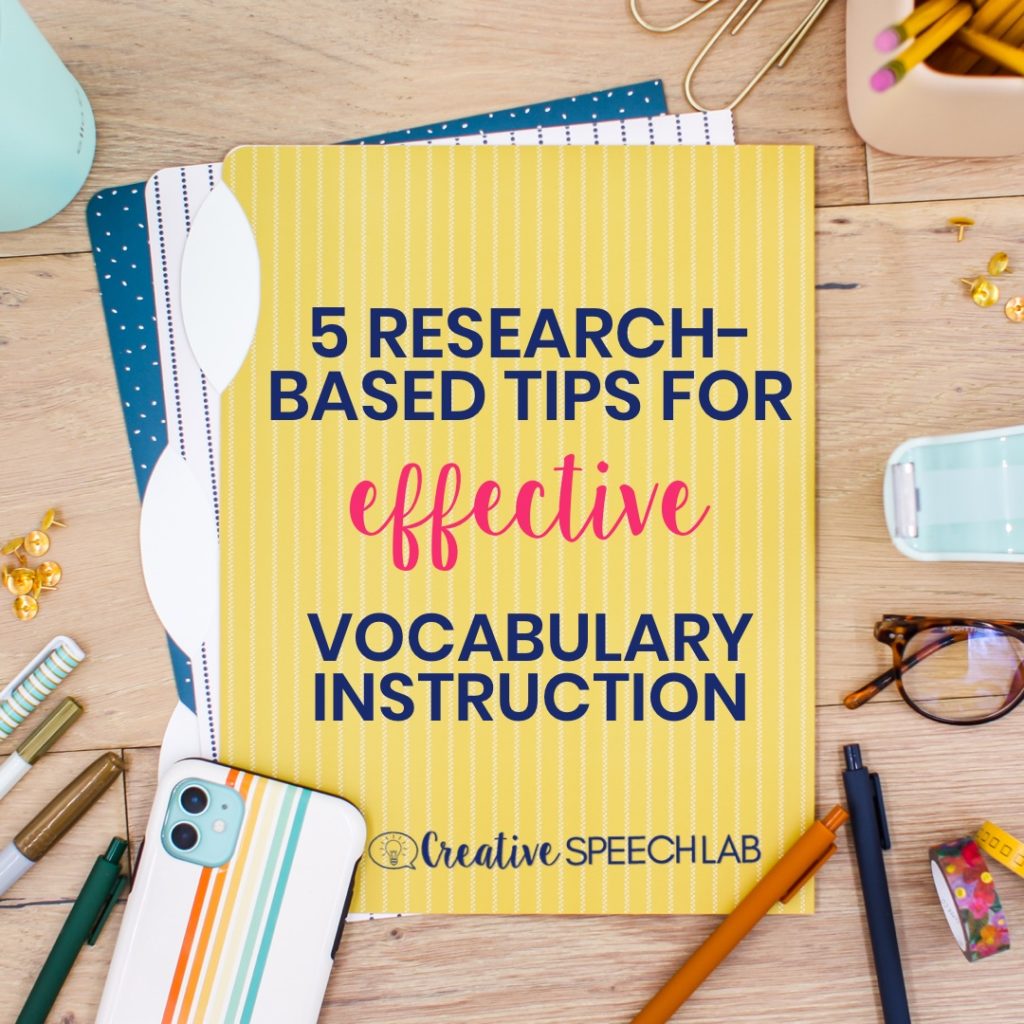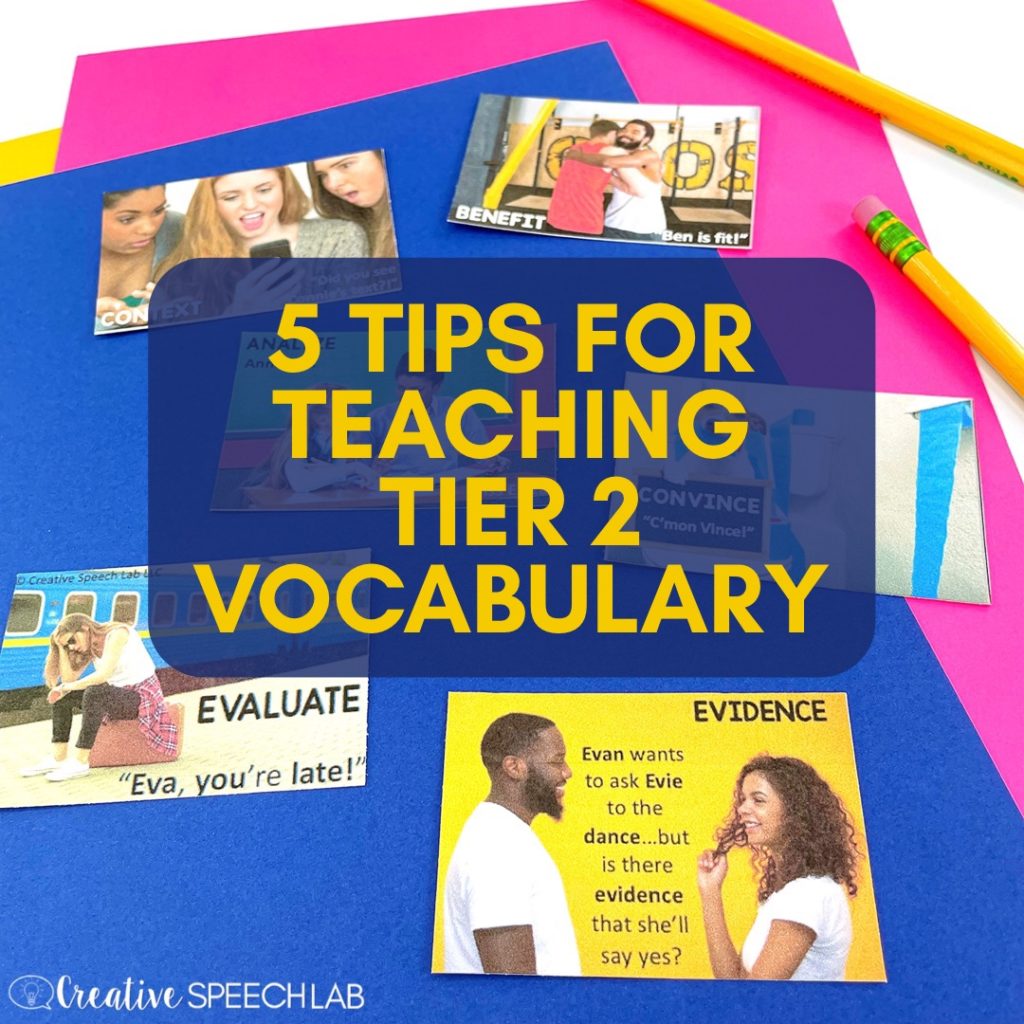CHECK OUT MY TIER 2 VOCABULARY INTERVENTION WITH RESEARCH, VISUALS AND MNEMONICS!
If you have older students on your caseload, chances are you’re trying to do ALL of these things at once…
- build a trusting relationship
- engage and motivate them to work with you
- make your content age-appropriate and relevant
- teach skills that will help them academically
- help them generalize the skills they’re learning in the real world
This topic deserves an entire webpage, don’t you think?
Here are some ways you can inspire lightbulb moments in your older students.
Check out my latest blog posts about older students!
- Build your relationship from the start.
It all begins with your relationship. Trust is paramount, especially when you ask your students to do things that feel challenging. That being said, it sometimes takes extra time to build trust and rapport with older students and that’s okay!
Remember, your older students might be taller than you, but they’re still just kids who are trying to find their way (in addition to finding themselves). Whether or not they show it, they need your attention and support.
Grab this free Maslow Hierarchy of Needs for Schools in my freebie library so that you can easily keep all of your students’ needs in mind.
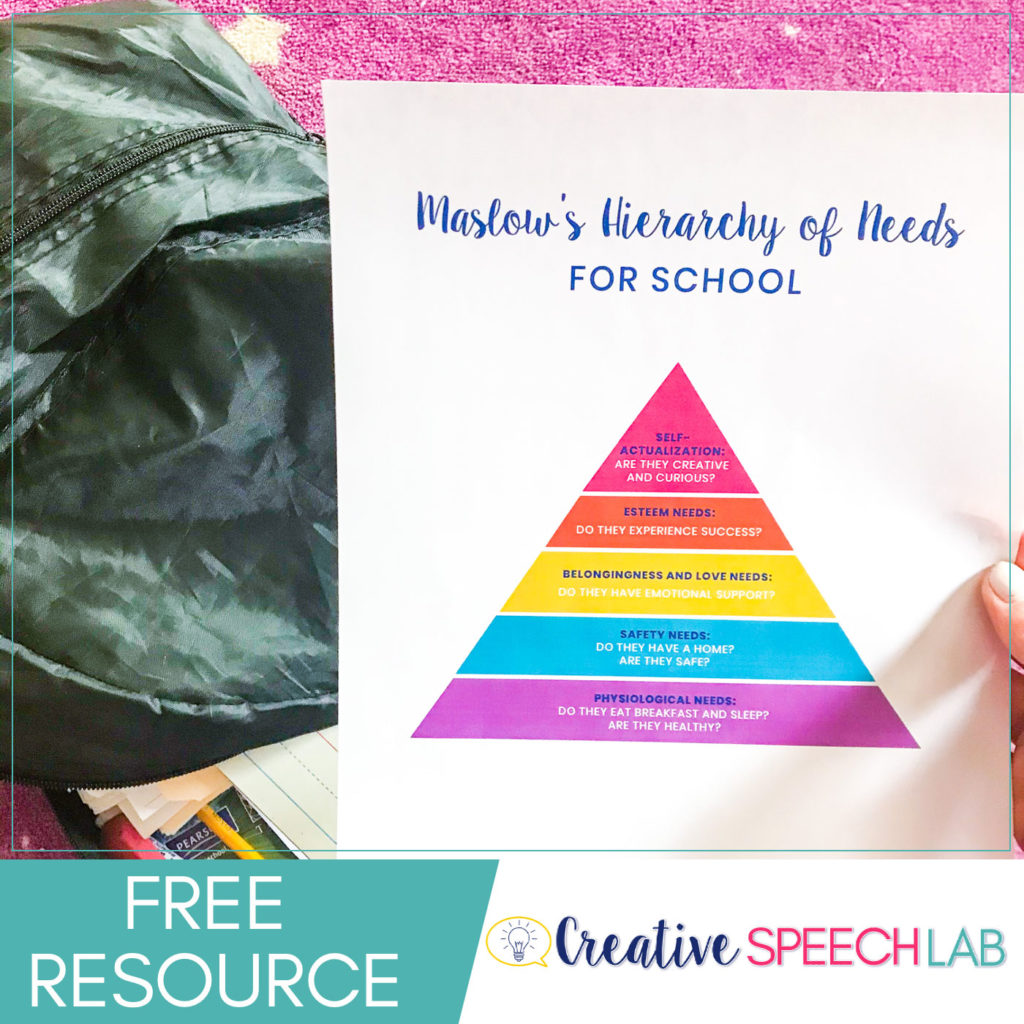
- Make your content age-appropriate and relevant.
The reality is that the older students become, the more likely they are to feel embarrassed when encountering materials that appear too “young” for them.
Look for materials that include real photographs or age-appropriate illustrations. Choose high-interest topics.
Check out these examples!
- Use Tier 2 vocabulary to help them academically.
Researchers recommend incorporating Tier 2 vocabulary words in your instruction because it occurs across the academic curriculum (e.g. “evaluate”). Browse your students’ assignments and highlight these words. You’re sure to find several. Do your students really understand the directions and the questions they’re being asked?
Check out these blog posts about how to provide effective vocabulary instruction to your older students.
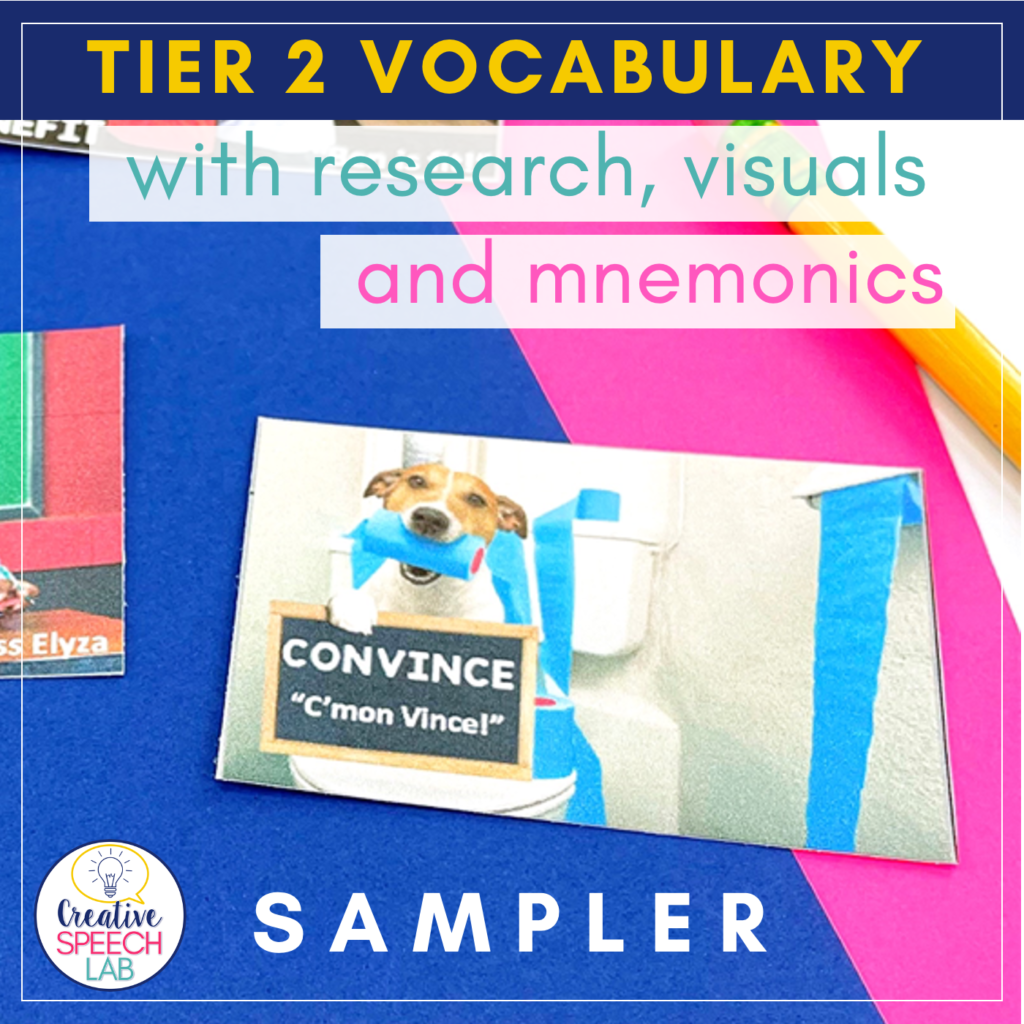
Get started teaching Tier 2 vocabulary using engaging, research-based methods with a free sample from my Tier 2 Vocabulary with Research, Visuals & Mnemonics resource.
- Connect their speech and language goals to their personal goals.
Help your students take ownership of their goals with this free Dream Job resource. As they gain a clearer understanding of how their speech and language goals can impact their personal, long-term goals, their motivation will increase.
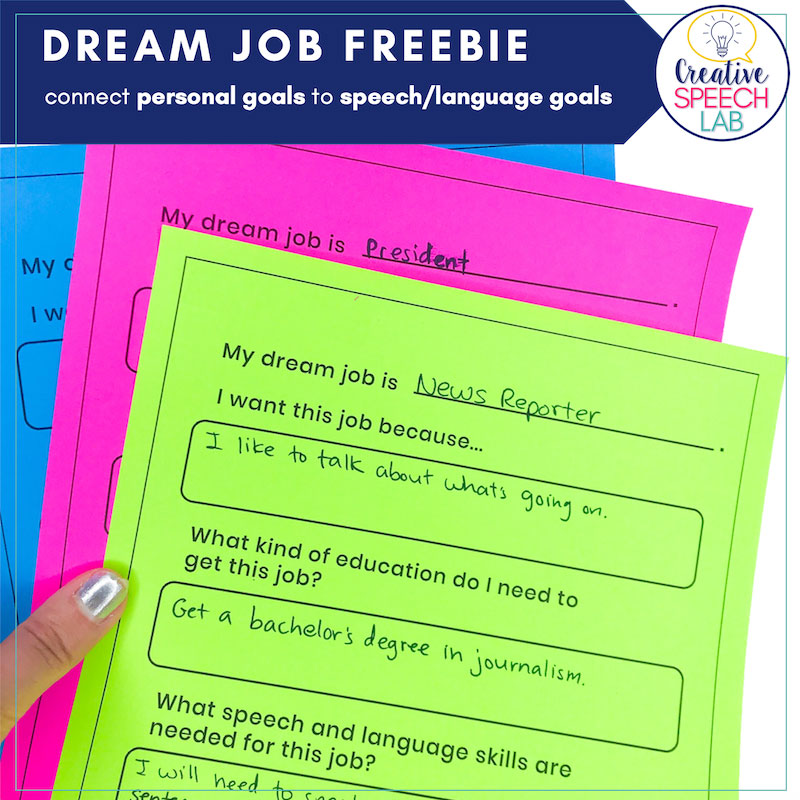
- Build a research-based routine with exit slips.

When you ask students to quickly answer the question on an exit slip at the end of your session, you’re reinforcing important skills.
Learn more about how and why to use exit slips in this blog post!
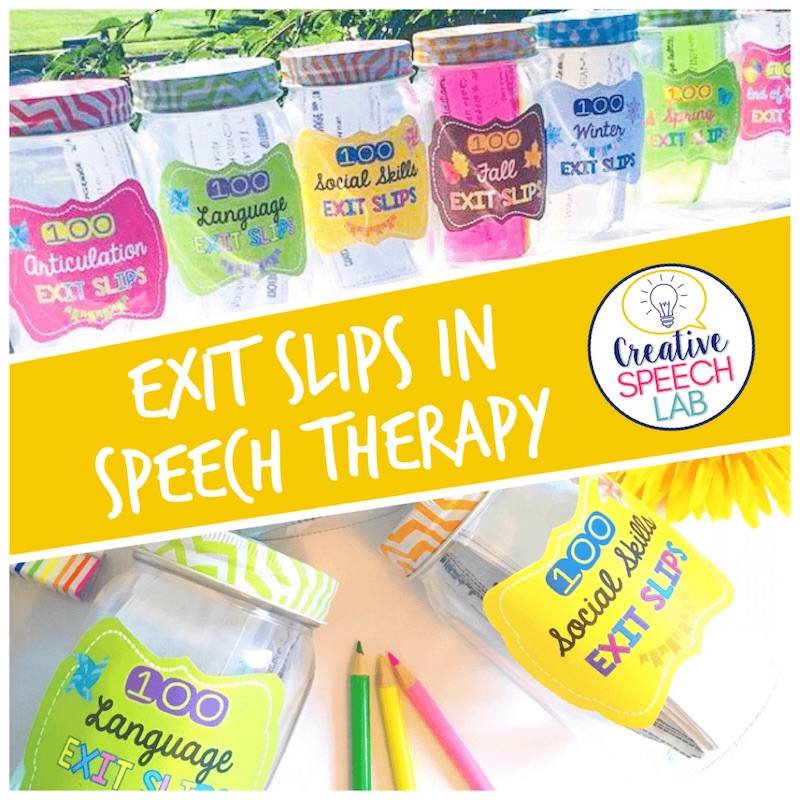
- Help them generalize the skills they’re learning in the real world.
School jobs, field trips and special events are just a few of the many opportunities in which goals can be practiced in real-time.
Select meaningful stimulus words for articulation or language practice (i.e. if you’re practicing the /r/ sound swap out “racoon” for a person’s actual name instead).
Theatre can also be a powerful way to help students generalize the skills you’re teaching them. Watch older students using Articulation and Language Theatre for Group Therapy in this video!
Are you on Instagram? Follow the account @slpbigkids and the hashtag #slpbigkids for more helpful tips and tricks to help your older students!

